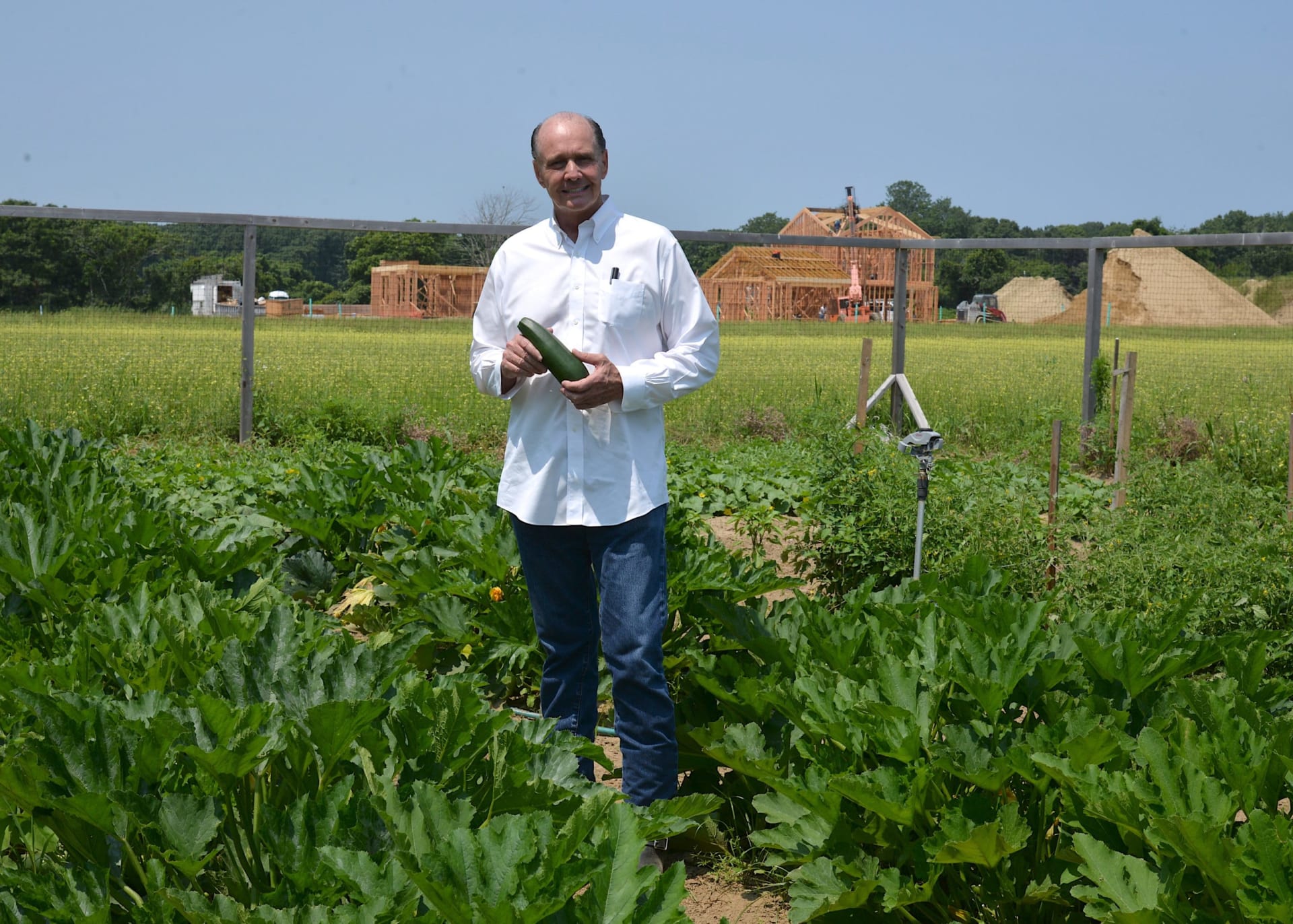Mr. Collé bought the 40 acres about 14 years ago and had made prior attempts to develop it that were not met with approval. The land, which has vistas of another 100 acres of agricultural reserve, had been a farm. It stayed fallow for a couple of years, and then for the past 11 years it’s been planted with organic buckwheat.
“We have not used one pesticide, one herbicide, one fungicide,” Mr. Collé said. “There’s been no harsh chemicals used on this property. It’s been all organic products for about 11 years now.” And just this month, two beehives were installed at the garden.
It was in 2020 that the organic garden was planted to support food pantries during the pandemic. It’s cared for using organic products from Advancing Eco Agriculture, a group of plant and soil professionals dedicated to regenerative agriculture, a movement to improve soil health, increase biodiversity and combat climate change through practices that go beyond organic farming.
The garden started off making donations only to the East Hampton Food Pantry. When it produced more food that the pantry could use, the bounty was shared with other South Fork food pantries.
This year, the size of the garden was expanded by 75 percent, and Mr. Collé intends to enlarge it further.
“The people who buy the houses will have access to the garden and they can come and pick their open vegetables and fruits, and they’ll also be getting honey throughout the season,” he said. Another recent addition is a 50-foot strip of wildflowers on the 28-acre preserve. The bees from the newly installed hives pollinate the wildflowers and the vegetables in the garden.
“Everything is growing in leaps and bounds,” Mr. Collé said. Tomatoes, zucchinis and more are growing healthier and better than plants fed with chemical fertilizers, he added.
“I also introduced into the C and Rs — covenants and restrictions on the property — that there will never be a chemical fertilizer used,” he emphasized. “It will never be a tree farm. And all the beautiful vistas of the 100-plus-acre reserve will always remain.”
Brother and sister Dean and Marilee Foster of the Foster farming family are his friends, he said, and they have helped him on the farm and garden. Mr. Foster planted the buckwheat and Ms. Foster consulted on and oversaw the planting of the organic vegetable seedlings.
The area is a 5-minute walk to the ocean and Wainscott Hollow Road is not a shortcut to anywhere else, so few cars drive down it, Mr. Collé pointed out, saying that 90 percent of the people who drive on the road will be the people who live there.
In addition to the one lot where a modern barn-style house is under construction now and expected to be completed by the Fourth of July in 2022, another lot with a conceptual design in place is in contract.
There will be no flat roofs and no ultramodern homes, according to Mr. Collé, who said he will develop each lot himself, adding, “I want to control the look of it and the feel of it.”
Each of the six lots is between 1.5 and 2.5 acres, and the houses will range between 8,000 and 10,000 square feet with a pool and cabana, and room for tennis.
The seventh lot, which hosts the Edwards farmhouse, is a half-acre. Mr. Collé explained that the town gave him permission to move the farmhouse 700 feet from its original location, which was on the 28-acre reserve, to the half-acre lot. In exchange for the town giving him the OK, he purchased a lot elsewhere in the Wainscott School District and gave it to the town for affordable housing.
Mr. Collé has begun restoring the Edwards farmhouse so it can be sold. Judging by what he has seen so far, he believes it is even older than it is said to be. “I’m pretty sure that that house dates prior to 1802 based on the hand-hewn beams and all the hard-carved dowels that hold all the mortises and joints together,” he said.





